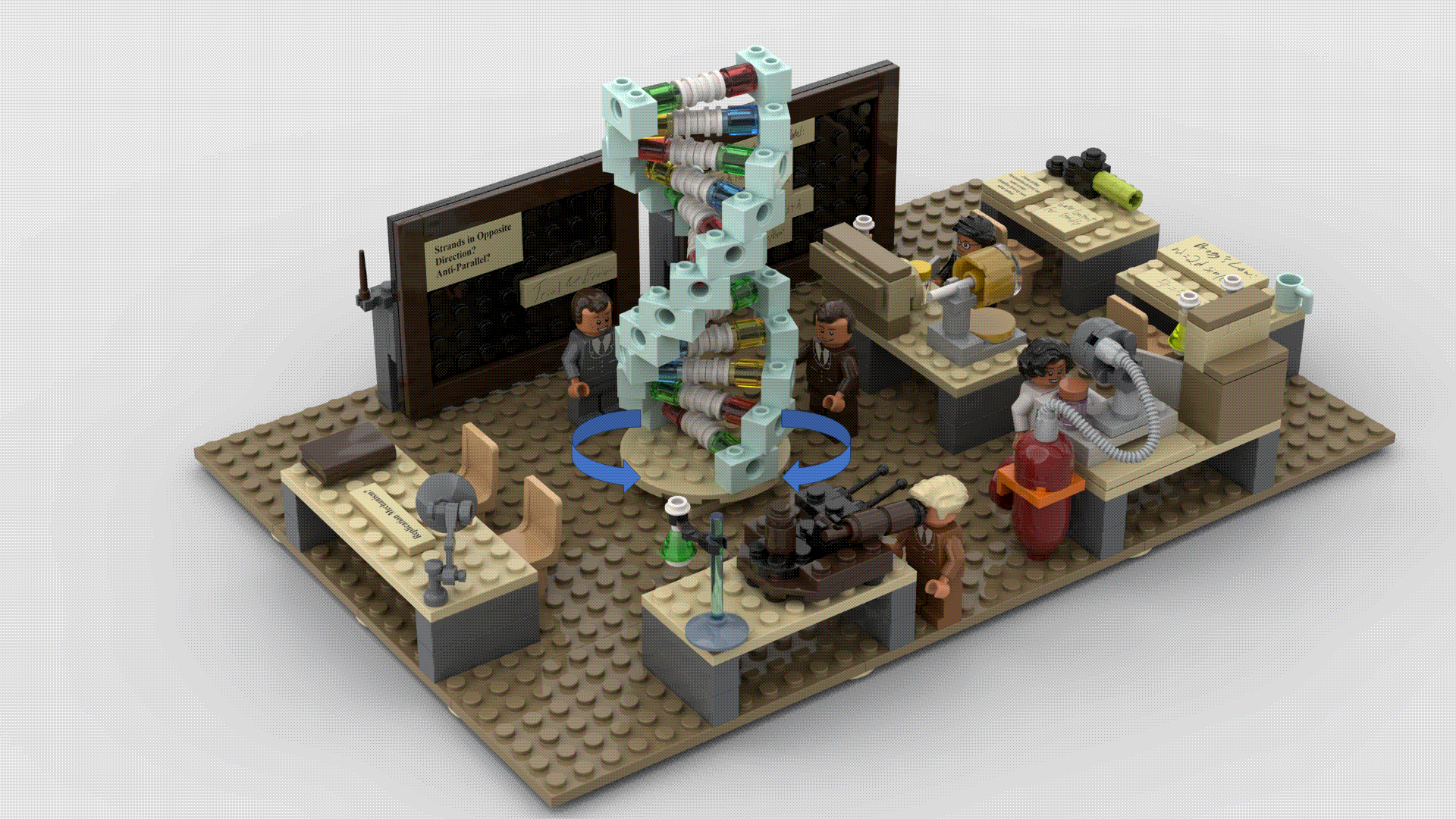Getting into sales in the biotech industry
Sales isn’t an easy career. That fact is true irrespective of which industry you work in.
But generating leads and sales is especially difficult in the life science sector.
Scientists are naturally more skeptical than the average person. Marketing efforts cannot overstate scientific and medical claims. And the cost of developing technologies and therapeutics drives up their costs.
Yet despite the need for strong marketing, many scientists lack the experience and skills to thrive in marketing and sales. Furthermore, graduate students and postdocs transitioning from academia require sales resources not typically available from the university.
That’s where Harrison Waid, Co-Founder of Succession.bio comes in. At Succession, Harrison and his team help sales reps of all experience levels take the next step in their sales career. He also formed Succession to help scientists learn from other sales professionals and thrive in the field. His combination of classes, resources, and community engagement provides scientists with the skills and the network to become successful sales professionals.
With that, I am delighted to share with you my interview with Harrison Waid. Read on to learn about sales in biotech, Succession’s sales education programs, and the ways you can begin a career in biotech sales.
The Interview
PN: Thanks for coming on to the BioGraphers Series, Harrison! I understand you started in data storage and cloud servicing. But what inspired you to move into the life sciences?
HW: It’s interesting how careers can work out as we go through life. I was an intern for a tech company and played college football as a punter at San Jose State University. With my passion for competitive sports, I found that sales was a great fit for my competitive nature. After a few works working on tech-enabled sales, I seized the opportunity to work with a good friend of mine at Synthego.
At Synthego, I loved that we were selling something that would fundamentally change human health. Sharing scientific breakthroughs and potentially life-changing cures grew more appealing to me by the day. Moreover, I gained roles in building out the inside sales teams and teaching scientists how to sell. That’s where I fell in love with training and development. Now that I co-founded Succession, I get the best of both worlds. After running multiple teams across training, insides sales, sales development, customer success, and sales operations, I realized there was an opportunity to take the incredible training and enablement programs we built at Synthego and bring them to the rest of the life science industry.
PN: As you became acquainted with life sciences marketing, what differences did you notice between biotech sales and sales in other industries? How should biotech companies account for these differences in their sales efforts?
HW: Sales in biotech is unlike sales in other industries. Many individual factors highlight these differences, some of which I will list below:
- Evidence-backed sales: As Carl Sagan would say, extraordinary claims require extraordinary evidence. Scientists embrace this principle when deciding to purchase different products or services. They will search for the data to back up the claims you make. A biotech salesperson must therefore include data as a key component of their sales process. But data alone isn’t enough. Scientists are human and make emotional decisions (despite what they will admit). So sales reps have to tell emotional stories behind the data they share.
- Technical expertise: A biotech salesperson will not convince any scientist without knowing the science behind their technologies to a T. Without the expertise, the scientific community will dismiss all your efforts. Your role isn’t to be an expert in their science, but you do need to be an expert in how your solution can solve their unique applications.
- The products and services you sell: Much of the tech world is filled with apps that require a subscription to pay. That’s not the case in the biotech realm. While in biotech, you mostly sell physical products or services. The biotech salesperson must find ways to consistently win back the customers who previously bought your products or used your services. This makes exponential growth more challenging.
It’s in accounting for these differences that the challenges in sales are most prevalent. Most biotech sales reps are trained on their product and its capabilities to ensure expertise. It’s so much so that sales reps simply “show up and throw up”. That’s where a rep simply presents what their company does and hopes it’s compelling enough for the prospect to buy. In the process, companies forget to address their customers’ challenges, objectives, and applications. Yet, it is by addressing these concerns that reps can truly start highlighting their products as the right solution.
PN: Given all the effort needed to succeed in sales, a scientist may think the process of doing sales is too overwhelming to learn. Yet, why is sales so important for a biotech company to master? Shouldn’t the product be the primary determinant of its ability to sell?
HW: There are countless products and services that solve the same problems a scientist may face. From the options to “do it yourself”, take completely different approaches, or choose direct competitors, scientists can be left overwhelmed trying to discern which solution is best. They, like us, are still human after all.
That’s where sales reps come in.
Sales reps hold hundreds, even thousands, of conversations about their products and services. These conversations provide sales reps with unique insight into the market and how their products can be used across applications. They help scientists understand all that needs to be known about the market and the products they sell. These insights and knowledge help scientists make informed decisions about their purchases.
PN: You’ve demonstrated the importance of strong sales education for any sales team, and that you provide for your students. As they participate in Succession, what should they expect from your training program?
HW: Before I distinguish our program, let me give you a picture of a typical sales training effort. Most sales training consists of putting every rep into the same room and teaching them the same things. The problem with this approach is that it’s not tailored to each rep’s unique experience and skill levels. Experienced reps are bored because they’ve seen it all before, new reps don’t have the experience to understand all the concepts, and the rest of the group will forget 90% of what they learn after just 7 days based on the forgetting curve. To make matters worse, most of this sales training isn’t specific to life sciences so your team has to spend extra time and effort translating it to your team’s unique needs.
At Succession, we provide personalized skill development that’s tailored to the life sciences. We start by aligning with your company’s top key performance indicators. Then, your reps conduct a role-specific skills assessment to determine where they need additional training. Then we build each rep a training plan unique to their experience level. The content we produce for them is both live and on-demand so each rep can return to the concepts at any time to reinforce their training. Through our approach, you can systematically uplevel your entire sales team, as opposed to the classic “one size fits all” training sessions.
PN: With so many services, I imagine you’ll need a lot of teachers to adequately train a sales teams. How do you find the personnel who share your vision and possess the experience needed to teach sales properly?
HW: Succession is not a one-person job. We have diverse groups of people who develop, teach, and apply the sales skills they possess in the life sciences. Here are just some of those people below:
- Sales reps: We leverage a network of expert sales reps who are actively selling in the field today. They create courses, workshops, and resources to make actionable the efforts taken to enhance sales in the life sciences. Our content isn’t based on material and theory developed 20 years ago. It’s tactical sales skills that skill reps can use immediately after finishing a lesson.
- Scientists: Sales isn’t just about the reps who do it. In that spirit, we bring in scientists to discuss what they’re looking for when they work with a sales rep and what appeals to them in a sales effort.
- Other biotech experts: The Succession community is constantly growing, being filled with other reps and experts to whom you can ask questions and receive advice you can apply to your sales efforts. It’s also a great place to build your network as a life sciences sales professional.
PN: Let’s end the interview with a book recommendation segment. What books would you recommend for people who want to improve their biotech sales?
HW: I have several sales books I would recommend through my LinkedIn post. Here, I categorize each of the books by sales skill. They’re great places to start for sales and useful supplements of the courses we provide at Succession. And if you want to get more resources like these, check out Succession at www.succession.bio and learn how you can uplevel your sales skills today.
Author
-

Paul Naphtali is a seasoned online marketing consultant. He brings to the table three years of online marketing and copywriting experience within the life sciences industry. His MSc and PhD experience also provides him with the acumen to understand complex literature and translate it to any audience. This way, he can fulfill his passion for sharing the beauty of biomedical research and inspiring action from his readers.
View all posts




